No Education for the Displaced
Sustained conflict in Afghanistan over the last four decades has repeatedly forced Afghans to flee their homes, either internally displaced, or migrate to other countries. The displacement, and migration, caused countless children to leave school, most often for good.
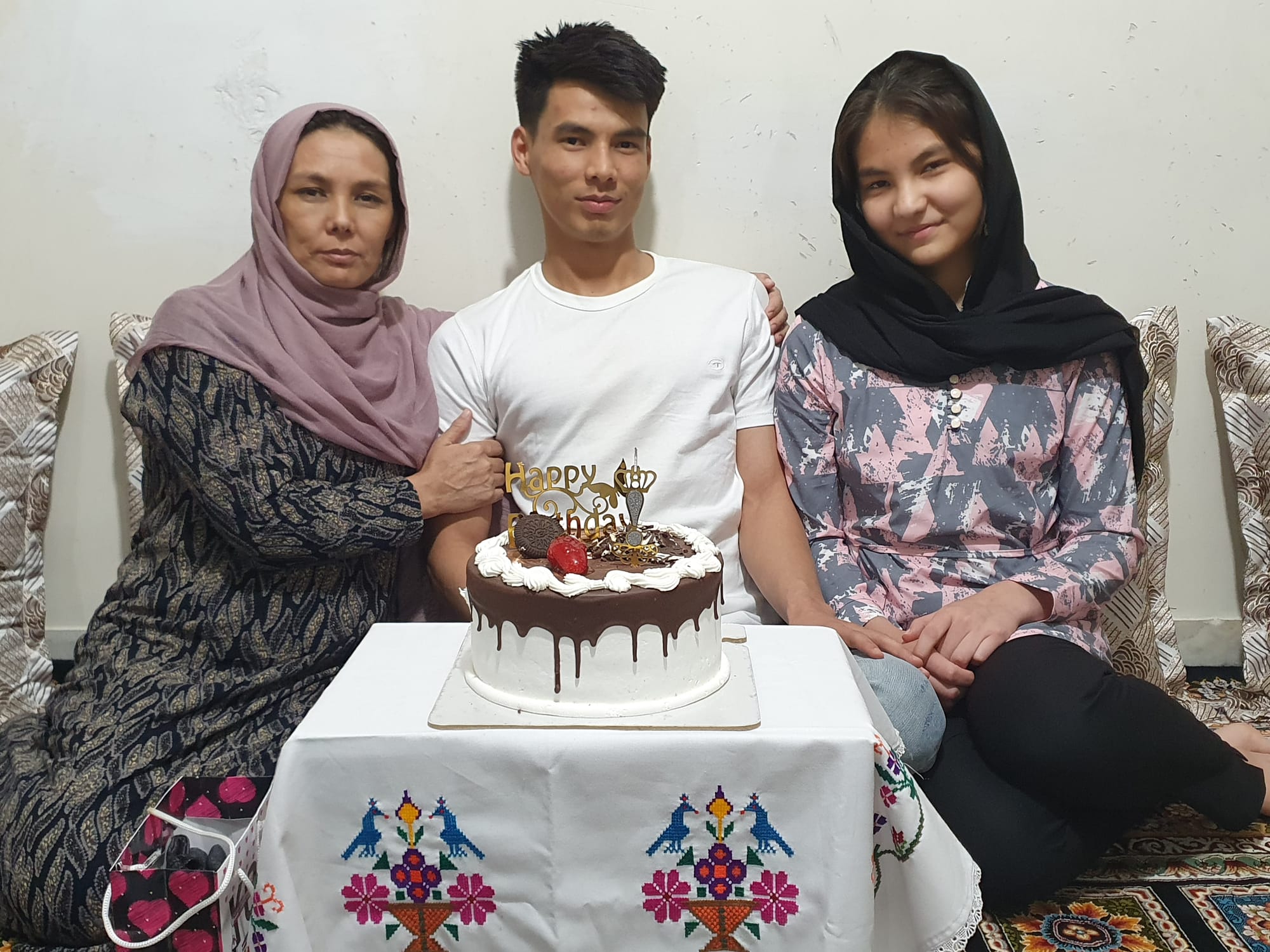
Reporting by Shabana Farahmand, Abdul Karim Azim, and Samira Wafa, Written by Mohammad Jawad “JD” Alizada
This article is part of a broader series exploring changes regarding access to education in Afghanistan, created with support from Afghan Witness (a project of the Centre for Information Resilience), which uses open-source investigating to expose human rights violations and counter mis- and disinformation. This series will incorporate open-source techniques to further corroborate the investigative reporting. Please click here to read previous publications in the series by Alive in Afghanistan.
Alive-in is a not-for-profit, community-supported media agency that helps journalists from underrepresented communities cover stories of local and global interest.
You can support our journalists by forwarding this newsletter to others who may value these stories and by donating at the link below.
AFGHANISTAN/IRAN — Sustained conflict in Afghanistan over the last four decades has repeatedly forced Afghans to flee their homes, either internally displaced, or migrate to other countries. The displacement, and migration, caused countless children to leave school, most often for good.
The Taliban, poverty, and cultural limitations are not the only reasons Afghan children remained out of school.
“I wanted to be a teacher when I grew up,” 42 year-old Afghan woman Hanifa Jafari, told Alive in Afghanistan during a phone interview from her home in Iran.
“There were tall trees with swings on them that we used to swing off of,” Hanifa recalled memories of her time in school as a child in Kabul, the capital of Afghanistan, in the early 1990s, “There was no fighting, the situation was good, there was peace.”
But that stability and peace wouldn’t last long, by the time Hanifa finished 2nd grade as an honor student, and was ready to go into 3rd, President Najibullah’s Soviet-backed government had collapsed, and civil war had broken out, with Kabul as the battleground between the different Mujahideen factions fighting for territory.
“We were sitting inside our classroom, a container with no roof, covered by a tarp when the first rocket hit near our school, covering us in dust, we ran out of the class and towards our homes. I don’t know how I got home that day,” Hanifa said of the last day she went to school.
Too scared to go to school anymore, she didn’t listen to her father urging her to go, telling her that her classmates were going. In the following four months of “intense fighting”, Hanifa and her family, including her toddler sister, had to leave their home multiple times and hide in a basement as rockets flew over Kabul, hitting home after home.
“We spent 40 days in that basement, we couldn’t return home, [which was] about 50 meters from that basement–due to the intensity of the war,” Hanifa said.
“Shokria (Hanifa’s 2 to 3 year-old sister) was my responsibility, I would hoist her on my back and wrap a scarf around us so she wouldn’t fall as we escaped,” Hanifa recalled.
“When the house-to-house war began, Pashtuns would take Hazara prisoners, and hammer nails into their skulls, and Hazaras would take Pashtun prisoners and hammer nails into their skulls,” Hanifa said.
Pashtun and Hazaras are two of the main ethnic groups in Afghanistan.
“We had to leave Kabul for the country out of fear,” Hanifa said. With Hanifa’s father working in another province, her mom decided to leave Kabul for their home province of southeastern Ghazni a few months into the war. Hanifa took her backpack and 3rd-grade books with her in the hopes of continuing school.
“It took us 24 hours to get to Ghazni City [the capital of Ghazni province],” Hanifa said, adding that her family had to take a detour because the shortest route went through an area controlled by a Mujahideen faction from another ethnic group at the time.
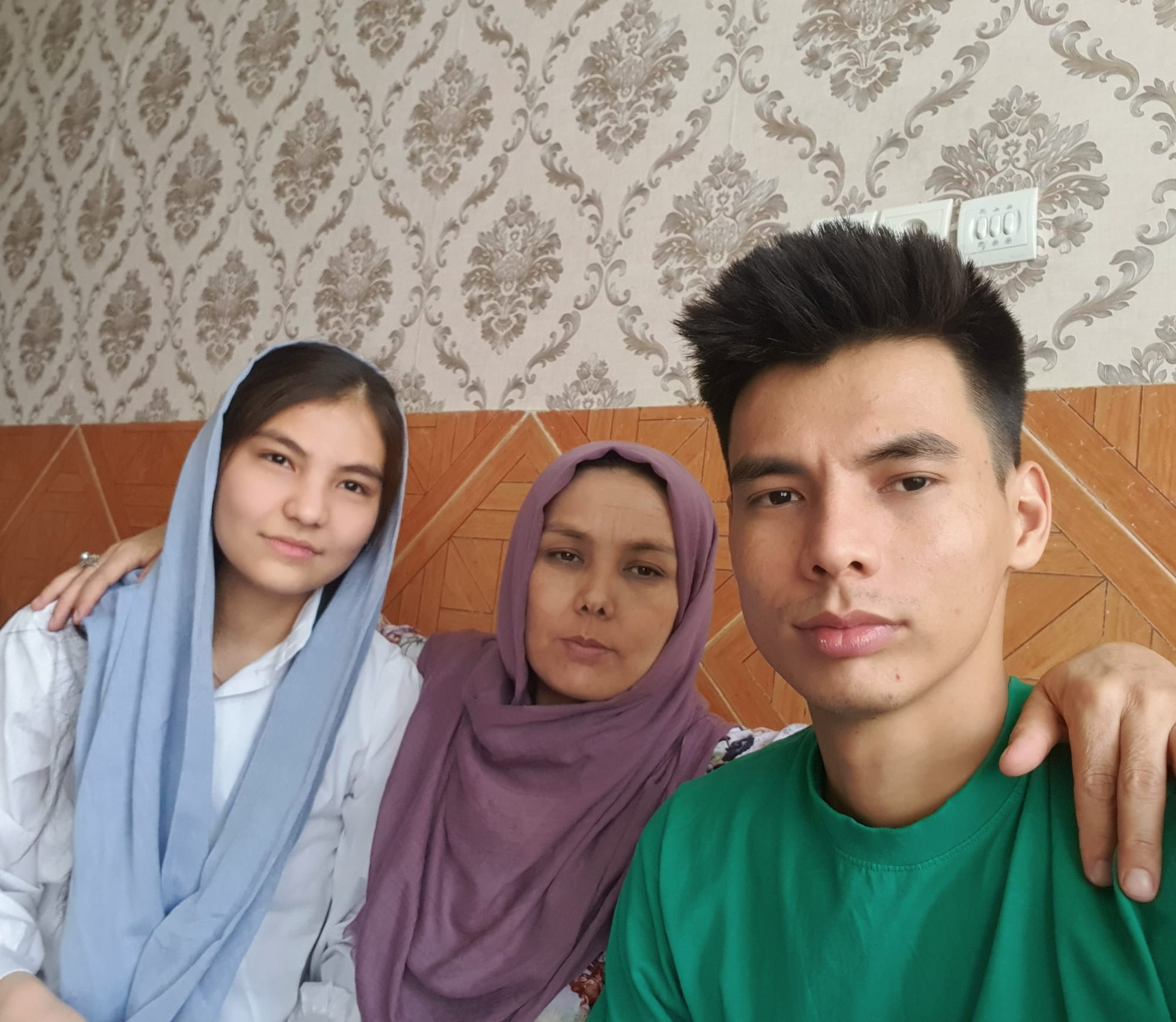
When Hanifa arrived in her hometown of Golkoh, a village in Qarabagh District of southeastern Afghanistan’s Ghazni province, there was no school, burying Hanifa’s dreams of a future.
“There was no school, my brother didn’t allow me to study with the Mullah saying, ‘You are going to restart from abcs at 11 years old?’ I stayed illiterate, it would have been good if I learned how to read the Quran, if there was a school in our village, I would have studied and fulfilled my dreams.”
In her case, as with so many Afghans affected by war, her dreams were not to be. Hanifa was 21 years-old before the first school was built in her village.
Four decades of war forced millions of Afghans into displacement and migration. Although the statistics are uncertain on the number of Afghans displaced due to the war in the 90s, a report by the United Nations High Commission for Refugees (UNHCR) published in 1999 estimates it in the hundreds of thousands.
Hanifa is not the only member of her family to suffer from the sustained conflict in Afghanistan. When the Taliban took over Afghanistan in 2021, Hanifa and her two children, 22 year-old son Murtaza, and 17 year-old Zahra, lived in Kabul.
After the Taliban barred girls above 6th grade from attending school, Hanifa decided to leave Afghanistan and take her family to Iran where her husband was working. Zahra was in 8th grade at the time, her schooling being delayed by the coronavirus pandemic.
Today Zahra is currently enrolled at an Iranian school in the 9th-grade. She hopes to become a doctor, which makes her mother hopeful of a brighter future for at least one of her children.
When the Taliban took over Afghanistan, Murtaza had just finished high school and was preparing for the university entrance exams, but his dream of becoming a businessman was crushed.
A few months after they arrived in Iran, his father was hit by a car on the way to work and killed instantly. After this Murtaza had to start working to earn money to take care of his family.
“Hopelessness, fear, and uncertainty about my future envelopes my thoughts at the moment,” Murtaza told Alive in Afghanistan, “but you have to adapt to the situation, sometimes you can’t get what you want because of the situation you are in.”
Murtaza works at a tailoring factory to support his mother and sister. Hanifa escorts Murtaza to and from work every day out of fear that the Iranian police will arrest and deport him–even though they live in Iran legally.
“Afghans don’t have a good life in Iran, we are harassed and humiliated daily,” Murtaza said.
His mother Hanifa says Iranian police have a better attitude if women are present.
If I study, who will feed my family
The story of the Jafari family is an experience known to countless Afghan families and individuals. 15 year-old Lal Mohammad from southern Helmand province was only 7 years old when his family had to flee Marjah district for neighboring Nimroz province. War, displacement, and poverty have been the main factors depriving him of education.
Lal Mohammad’s family were farmers and kept livestock in Marja, but after heavy battles between Taliban groups and the security forces of the previous government, their lives were turned upside down, forcing the family to leave their home.
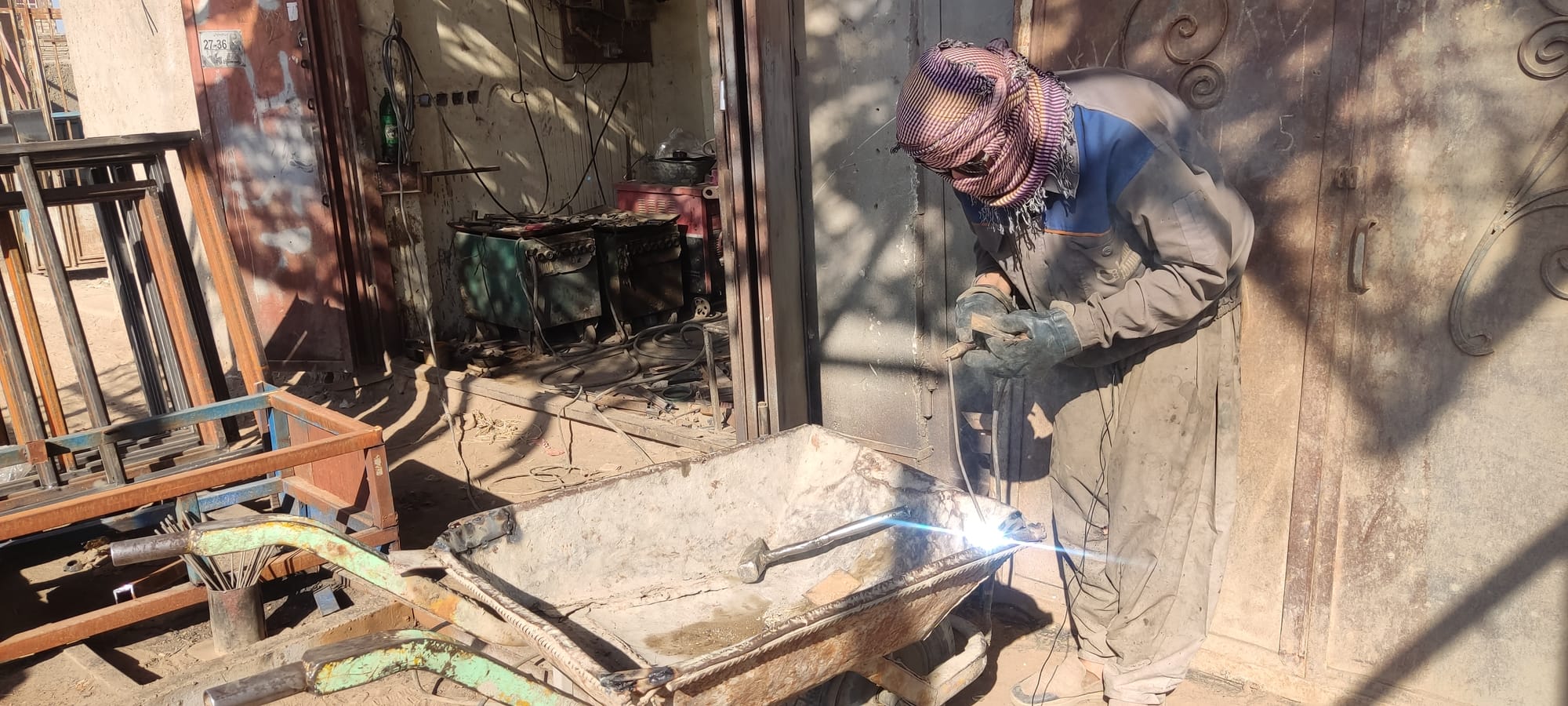
"I was in the second grade. One day, we were leaving school with 15 of my classmates when war broke out. My cousin was killed, our houses were destroyed, all our [livestock] was burned, and our lands vanished. We were stuck in the war for a month. My father said there's no life here anymore; we must leave. Everyone was fleeing, and Marjah District was destroyed," Lal Mohammad says.
War and displacement prevented Lal from seeking education. When his family arrived in Nimroz, poverty prevented him and his siblings from continuing their education. "There is no work; there are 14 people in the house. If I study, who will feed my family?"
The 14 people include his older brother’s wife and his child.
Lal Mohammad believes that war and poverty are the two main factors depriving Afghan children and youths of education. "We had no money when we came to Nimroz. My father had to send us to work instead of sending us to school so we could eat."
Lal Mohammad dreamt of becoming a doctor or an engineer, the two jobs with the most income in the poverty-stricken country. Instead, displacement due to war and chronic poverty has pushed him to work at an age when he should be going to school and being a kid. His dreams burnt away with the flames of war.
He hopes his two younger brothers, who are in the second and third grades, get to fulfill their dreams.
Crushed Aspirations
Alive in Afghanistan’s research over the years has found that Afghans across the country, regardless of their educational background, have a keen interest in seeking education since childhood. But war, poverty, and familial restrictions all stood between them and their aspirations keeping them far from the future they imagined for themselves. The joy they felt at the chance of experiencing a new environment, and the opportunity to learn, was only momentary.
“I had a sense of delight on the first day of school because I was getting to know new friends,” 35 year-old Ahmad Mohammadi hailing from western Herat province, who currently lives in Iran, told Alive in Afghanistan.
Ahmad was in 7th grade when the conflict broke out in Afghanistan forcing his family to flee to Iran. They had to make an illegal crossing, and their journey was “extremely difficult” to undertake.
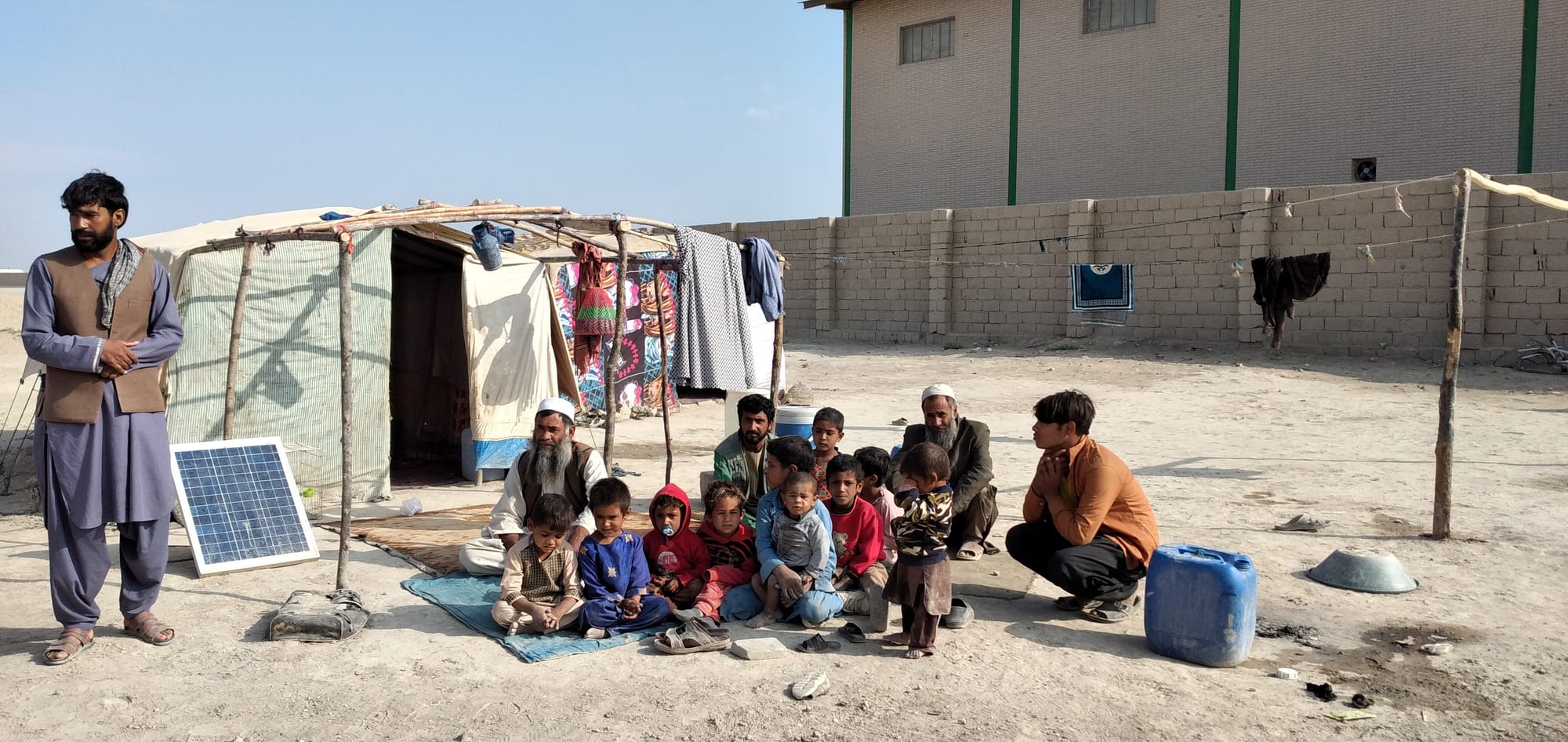
“There was fighting in our area, so we couldn’t stay in Afghanistan,” Ahmad said from his home in Iran.
Ahmad aspired to be a doctor when he grew up, his favorite subject was English, and his favorite teacher, their Dari literature teacher, “A very kind woman who treated all of us well!” Unfortunately, over the years Ahmad has forgotten English, despite once having a firm grasp of the language.
According to Ahmad and other Afghan migrants who have spoken to Alive in Afghanistan, Iranian schools refused to accept Afghan children into the education system. Several official reports over the years state that Iran has changed its policy repeatedly on whether or not undocumented Afghans are allowed schooling.
A Human Rights Watch (HRW) report published in 2002 stated, “[M]ost undocumented Afghan refugee children living in urban areas inside Iran are denied access to education.”
A 1999 report by the U.S. Committee for Refugees and Immigrants (USCRI) estimated that “[A]bout half of the Afghans living in Iran - have not been able to send their children to public schools and have had to search for or create educational alternatives for them.”
According to this USCRI report published in 2000, an estimated 1.8 million Afghans lived in Iran in 1999.
“Being forced to come to Iran affected us deeply, Iranians harassed us, were racist, and didn’t value Afghans, we are and were viewed degradingly!” Ahmad said.
Ahmad hopes he can study again, become a doctor, and serve and cure people. He says he hopes, “[F]or the day that an Afghan is no longer a refugee in a strange country, with an uncertain future.”
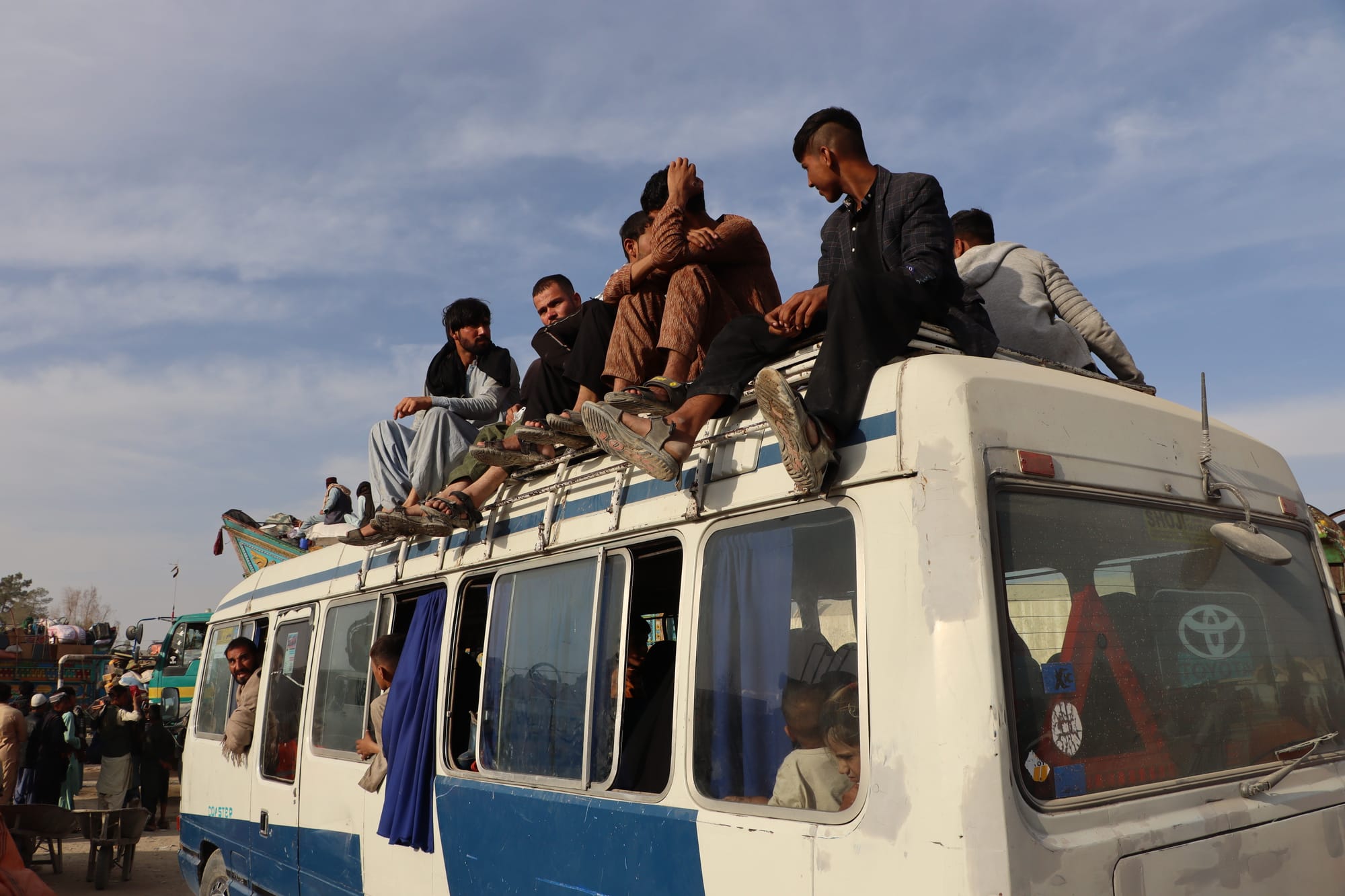
A Future Swallowed by Conflict
26 year-old Fardin Ahmadi from Herat City, the capital of Herat province, says he was “very happy to go to school as a child. Like the other children, I had a childish delight, and fervor was up in the air, with a keen interest in learning.”
Fardin’s favorite subject was Dari literature, “I wanted to become a journalist or a university professor.”
He recalls eating Bolanis (a stuffed flatbread) during recess at school with a small allowance his father would give him as his favorite time in school. But all this was only for a while. When Fardin was between 16 to 17 years old economic duress forced his family to migrate to Iran.
“I couldn’t continue my education, and the stress and fighting that took place in our country over the last 20 years, pummeled us into extreme poverty.”
Fardin is still optimistic about his future and that of his country, “I still hope that I can continue my education and be a useful person in society. I hope that our country has a better future, a system that people feel included in, and we get the opportunity to seek education as well.”
Economic duress due to the lengthy conflict across Afghanistan has left Afghans without stability or predictability of even their most basic needs. 54 year-old Wallajan Safi left his home in Kapisa province, just north of Kabul, for Iran seven times since he turned thirty, to work and send money to Afghanistan to feed his family.
According to Wallajan, although he did his best to support his children financially so that they could study, the community influence made them indifferent to seeking education.
“I was abroad for work. My two eldest sons grew up illiterate in the family,” Wallahjan told Alive in Afghanistan. Wallahjan’s absence from his children’s life meant he was not there to prevent his sons from dropping out of school.
When he was a child there was no school in the Afghania Valley of Kapisa province, where Wallahjan grew up. Only one of his two oldest studied up to 7th grade, leaving school after that.
His only daughter and two younger sons now go to school. But that is only possible because Wallahjan was forced to move his family from the Afghan valley to Kharijdara, Nijrab District’s capital city, due to fighting in their hometown 8 years ago.
At least in Wallahjan’s case, being uprooted from his hometown resulted in a better situation for his younger children. This is not the case for most Afghans.
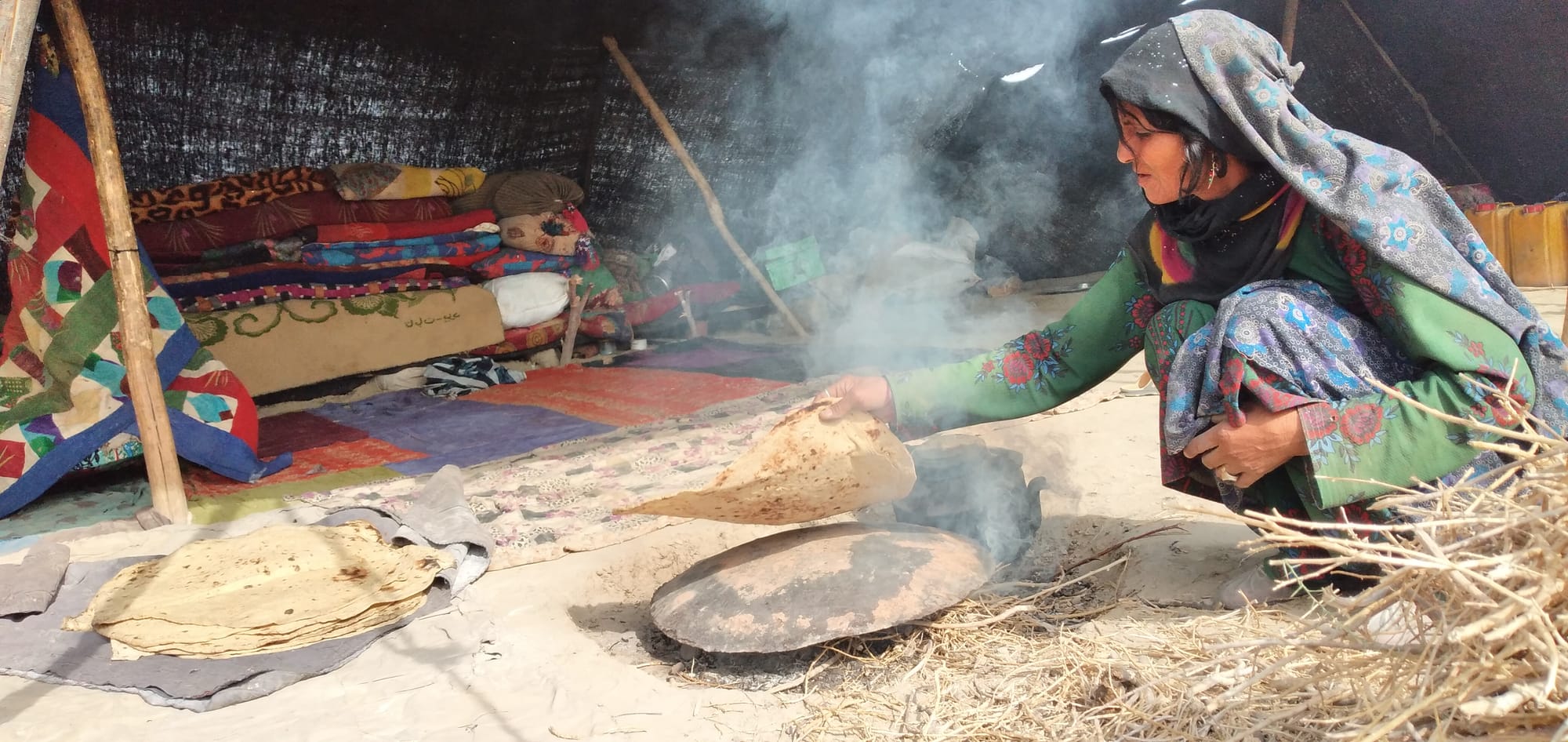
Heavenly Future Damned by War
“My mother was sick and had respiratory problems, and she never got better. I wanted to become a doctor to treat my mother,” 55 year-old Atiqa, a female resident of Faizabad, the capital of northeastern Badakhshan province, told Alive in Afghanistan.
“In those beautiful, never-to-return moments, my vision of the future was heavenly, I thought I was entering a new world, a future identical to my dreams,” Atiqa said, recalling the first days she went to school. But going to school wasn’t easy for Atiqa either, she was 12 when she first went to school due to her uncles opposing education for women.
After several years had passed, and the number of girls going to school increased, Atiqa’s father enrolled her into one nearby, saying ‘Go! You should also study!’
“I wasn’t a little girl, I knew some writing, but had a strange feeling enveloping me. The feeling of a person who has found a way out of a dead end, I was happy!”
At the time, Atiqa was so engrossed in the school books and her notebooks that she rarely felt the passage of time, “I couldn’t contain my excitement. When my dad saw that I liked school and studying, he would smile approvingly and would say, ‘Well done!’.”
Her father’s support for her education meant that Atiqa could seek education without concern, working hard to master math and chemistry, subjects she thought would help her, “Become a doctor sooner.”
Atiqa had become an adult, but was only in 8th grade when Afghanistan’s war broke out, “There was a revolution, with war raging across the country, warring factions intensifying the conflict on a daily basis.”
“My father asked me not to go to school anymore once the war started. We waited for a year for the war to end, but it only got worse. My father had no choice but to decide to migrate, and we left the country,” Atiqa recalled her family going to Chitral, a city in Pakistan’s northern Khyber Pakhtunkhwa province. Despite their efforts, Atiqa’s family could not find a school that would accept her. “That was the end; I never went to school again.”
About her last day of school, Atiqa said, “If I had known that it was the last day I would go to school, I would never have left it. I would have kissed its walls and doors. You don't know how much I long for school and my math and chemistry teachers, even now that I'm old, from time to time, I miss school.”
Atiqa curses Afghanistan’s wars for taking away her dream to become a doctor, separating her from all her attachments, and made her bury her dreams, “She [Atiqa’s mom] passed away before my eyes, and I had only studied until 8th grade, is there pain greater than that?”
“Damn wars! War made people call me Atiqa or Ahmad’s mother instead of Dr. [Atiqa]!”
Atiqa’s hope for a future is for girls' schools to reopen so, “No girl’s dreams remain unfulfilled.”
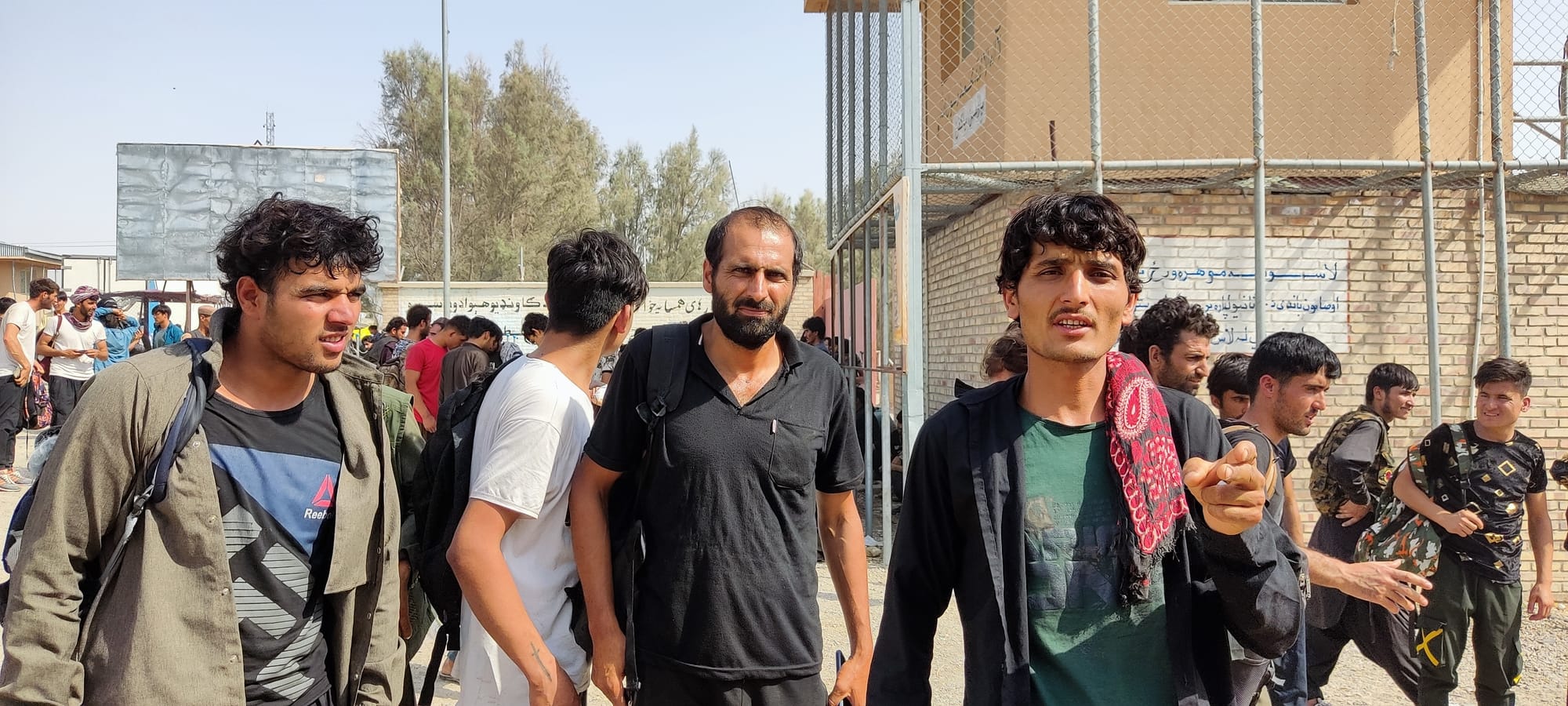
War, the Grand Thief
“My father was a farmer in our village, and I was studying in Faizabad. When the civil war started, my father was very afraid of the war. He was afraid of losing us. That's why we moved to Pakistan,” 50 year-old Ali Ahmad told Alive in Afghanistan. Ali is a resident of Faizabad, the capital of Badakhshan, and was born in Khash district.
Ali Ahmad was in 6th or 7th grade (1978 – 1979) when his father moved them from Badakhshan to Karachi City in Pakistan where according to Ahmad, Pakistani schools refused to enroll him.
“We were living a good and happy life when suddenly war took everything from us,” Ali Ahmad said sadly, “War is an enormous thief that takes away everything.”
In 1978, Nur Muhammad Taraki, the head of Afghanistan’s government at the time, enforced a number of reforms from the top down, intending to modernize Afghanistan by force. These actions by the central government and the harsh crackdown on protesters led to the intervention of the Soviet Union which sent troops into Afghanistan in December 1979. These events led directly to the Soviet-Afghan War that gripped Afghanistan for the next decade.
When it was peaceful, Ali Ahmad was a happy child, with an interest in and an outlook of his future. He was enrolled in a school at 6 years old in Faizabad where he lived in a relative’s home with his family back in Khash district.
“Although I don’t remember every detail, I had a good feeling on the first day of school. I was very excited. After a while, the lessons became serious, and I worked day and night on my homework and chores.”
Ali hoped to become a teacher in the future after he witnessed the respect teachers were given, “My interest in teaching increased every day, and I decided to become a good teacher. In the early years of school, I saw and thought that a very different future was waiting for me.”
Dari literature was Ali’s favorite subject. He enjoyed poetry and literature and their Dari teacher was his favorite teacher because, “He had a good sense of humor and encouraged us a lot.”
One memory from school that Ali recalls was a relative who asked Ali’s father “What is he doing sending his child to school? He should help with farming.”
Ali cracks a smile recalling that a few years after he started school, the child of the relative who had asked Ali’s father the question, was enrolled in the same school as him, and hid so Ali wouldn’t see him, “It was an interesting memory for me, but I was glad that a child from our village was also going to school.”
Today Ali has five children, three girls and two boys.
“I really want them to go to school. I don't see the future very well. When my daughters are illiterate like me, how can the future be bright?” Ali asked, adding, “Only an illiterate person can truly appreciate the value of education."
